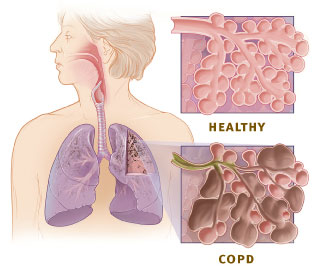Pre-Surgical treatment of breast cancer with different agents like hormone (Progesterone), COX (Cyclo-Oxygenage) inhibitors. tamoxifen (Estrogen receptor blocker) and aromatase inhibitors (Letrozone) are being tried for more than 50 years to have better outcome in terms of recurrence and mortality from the disease.

It has been observed that tumor spread (Metastasis) to distant places in the body is enhanced about 24 hours after surgery.
It might be due to release of stress hormones like prolactin, corticosteroids and many other.
Apparently to block this effect researchers are trying the agents so that there can be less tumor spread in the immediate post-operative period.
Researchers are also studying between the two phases of menstrual cycle, leuteal (14 days before beginning of menstruation) or follicular phase ( 14 days after menstrual bleeding starts) in menstruating women, when surgery can be conducted to the advantage of patients survival.
 Image via Wikipedia
Image via Wikipedia
Many surgeons prefer leuteal phase for surgery, but there has not been definite proof that it works to the advantage of the patient.
The choice of leuteal phase comes from the fact that progesterone rich environment may prevent spread of the disease.
Progesterone is an interesting hormone which prevents endometrial cancer whereas may stimulate breast cancer growth. It has another aspect that after administration it stimulates the breast cells for growth for 24 hours; and then inhibits growth or makes the cells stand still for 3 to 4 days, technically cells remain in the borderline G and S phase.

Dr Rajan Badwe, who is now the director of Tata Memorial Centre, Mumbai started the protocol of four to fourteen days pre-surgical treatment of breast cancer patients with progesterone injection be it a surgical biopsy, lump removal or both.
He is practising this protocol for about a decade now. It cuts down the chances of recurrences by 10% and brings down death rate by 8% as reported in the Tomes of India.
A genomic study over the next year, between the Indian government and the National Cancer Institute of the United States will look at the genomic changes that will establish just how this mechanism works its magic.

It has been observed that tumor spread (Metastasis) to distant places in the body is enhanced about 24 hours after surgery.
It might be due to release of stress hormones like prolactin, corticosteroids and many other.
Apparently to block this effect researchers are trying the agents so that there can be less tumor spread in the immediate post-operative period.
Researchers are also studying between the two phases of menstrual cycle, leuteal (14 days before beginning of menstruation) or follicular phase ( 14 days after menstrual bleeding starts) in menstruating women, when surgery can be conducted to the advantage of patients survival.
Many surgeons prefer leuteal phase for surgery, but there has not been definite proof that it works to the advantage of the patient.
The choice of leuteal phase comes from the fact that progesterone rich environment may prevent spread of the disease.
Progesterone is an interesting hormone which prevents endometrial cancer whereas may stimulate breast cancer growth. It has another aspect that after administration it stimulates the breast cells for growth for 24 hours; and then inhibits growth or makes the cells stand still for 3 to 4 days, technically cells remain in the borderline G and S phase.

Dr Rajan Badwe, who is now the director of Tata Memorial Centre, Mumbai started the protocol of four to fourteen days pre-surgical treatment of breast cancer patients with progesterone injection be it a surgical biopsy, lump removal or both.
He is practising this protocol for about a decade now. It cuts down the chances of recurrences by 10% and brings down death rate by 8% as reported in the Tomes of India.
A genomic study over the next year, between the Indian government and the National Cancer Institute of the United States will look at the genomic changes that will establish just how this mechanism works its magic.
...
Click here to Subscribe news feed from "Clinicianonnet; so that you do not miss out anything that can be valuable to you !!
...






